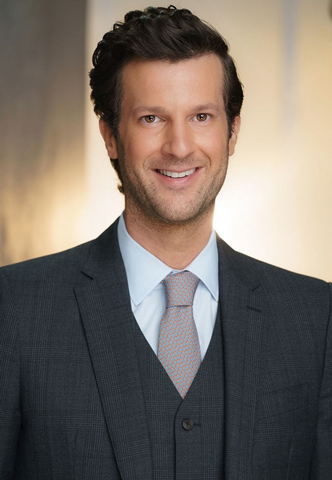Tattoos and piercings are more popular than ever – today, 61% of American adults have had at least one piercing, and 30% have tattoos. For individuals who express themselves through tattoos, piercings, or hairstyles, that begs the question – “can my boss fire me for having a tattoo or piercing? Can an employer discriminate against me for my hairstyle?”
Although it’s illegal for employers to discriminate against employees based on their hair in California, some can – and do – require employees to cover tattoos or piercings. Unfortunately, many employers also discriminate against or wrongfully terminate employees for their appearance, making excuses to avoid being held accountable. Today, we’re covering everything you need to know about laws governing employee tattoos, piercings and hairstyles in California.
Can My Employer Ask Me to Cover Up Tattoos and Piercings?
Yes, California employers can ask employees to cover tattoos and piercings. Employers can even refuse to hire potential employees with tattoos or piercings.
However, employers that wish to implement anti-piercing or tattoo rules must:
- Ensure the dress code manual and employee handbook clearly spell out body art policies;
- Specify what types of piercings or tattoos are banned from the workplace; and
- Enforce the anti-piercing and/or tattoo policy equally across all employees. For example, a company cannot regulate tattoos or piercings based on gender, ban a specific type of script, etc.

As body art grows in popularity with younger generations, employers continue to debate its role in the workplace.
While employers have the right to regulate employee appearance at work and make employment decisions based on factors like tattoos or piercings, those who do allow body art in the workplace should also make reasonable accommodations for employees.
For example, an employer may ask an employee with an offensive forearm tattoo to wear long sleeves at work. But could an employer fire them for that tattoo? If other workers or customers could reasonably be offended by it, but the dress code manual fails to include a tattoo policy and the employee complies with their employer’s wishes to cover it while at work, probably not. However, if the worker refuses to cover the tattoo despite their employer’s requests, they could be terminated with the proper procedures.
Case in point, a judge ruled that an employer “unfairly dismissed” a worker for having a swastika tattoo. However, the judge did not specify that the employer could not fire an employee for an offensive tattoo – only that they failed to take the correct measures when investigating the tattoo and the employee’s behavior.
Can An Employer Ban Religious Tattoos or Piercings?
As the Society for Human Resource Management (SHRM) wrote in a recent article,
“employers whose dress code requirements prohibit all visible tattoos and piercings may run into trouble – and morale issues may not be their only concerns.”
Under Title VII of the Civil Rights Act, employers with 15 or more employees must reasonably accommodate workers’ religious practices. Employers are only exempt if they can prove that doing so would place “undue hardship” on their business.
If you have a tattoo or piercing due to or based on a protected characteristic, such as your religion or national origin, employers cannot discriminate against you for that body art or refuse to provide accommodations unless they can prove that doing so would place undue hardship on their business.
Can My Employer Discriminate Against Me for My Hair?
In California, employers cannot legally discriminate against employees based on natural hair and hairstyles associated with race or ethnicity.

SB 188, also known as the CROWN Act, makes it illegal for employers to discriminate based on hair. It protects employees from discrimination based on “traits historically associated with race, including but not limited to, hair texture and protective hairstyles… such as braids, locks, and twists.”
Discriminating against employees with religiously-affiliated body art is a form of religious discrimination. Similarly, discriminating against employees for hairstyles associated with a certain race or ethnicity is a form of racial discrimination in California.
Only religious organizations, nonprofits, and private employers with less than five employees are exempt from the CROWN Act.
Soon, the rest of the U.S. may follow in California’s footsteps – the U.S. House of Representatives passed the CROWN Act as a federal law in March of 2022. If the Senate and President agree, those protections will soon apply to all Americans, regardless of their state.
Common Excuses for Wrongfully Firing Workers
Employers often try and cover up wrongful terminations to avoid being sued for wrongful termination or discrimination.
For example, your employer may fire you based on your body art or hairstyle, but claim that you…
- Mistreated other employees;
- Required termination because the company no longer needed your services;
- Performed job-related tasks poorly;
- Stole something from the business;
- Violated a hate-speech or harassment policy;
- Could no longer perform the tasks required of the job;
- Were fired for financial reasons;
- Violated company policies regarding appearance, attendance, and behavior;
- And more;
To justify terminating your position.
Some lies are easier to expose than others. For example, let’s say your employer claims they no longer need your position, but then hires a worker without body art to perform the same functions. Proving their claims about no longer needing your position false may be relatively easy. However, other allegations or excuses may be harder to prove false – that’s where an employment lawyer comes into play.
If you experience discrimination or wrongful termination, you deserve justice. Filing a wrongful termination lawsuit against your former employer could help you obtain compensation for lost income and benefits, pain and suffering, and more.
If you believe your employer discriminates against you for your body art, you can help hold them accountable by filing a discrimination complaint with the California Department of Fair Employment and Housing.
At Wilshire Law Firm, we hold shady employers accountable, shining a spotlight on labor law violations. If you believe your employer violated labor laws, call us at (800) 501-3011 or contact us online for a free, discreet consultation – we’re here to help.
For more, read our other articles on our Personal Injury Law Blog











